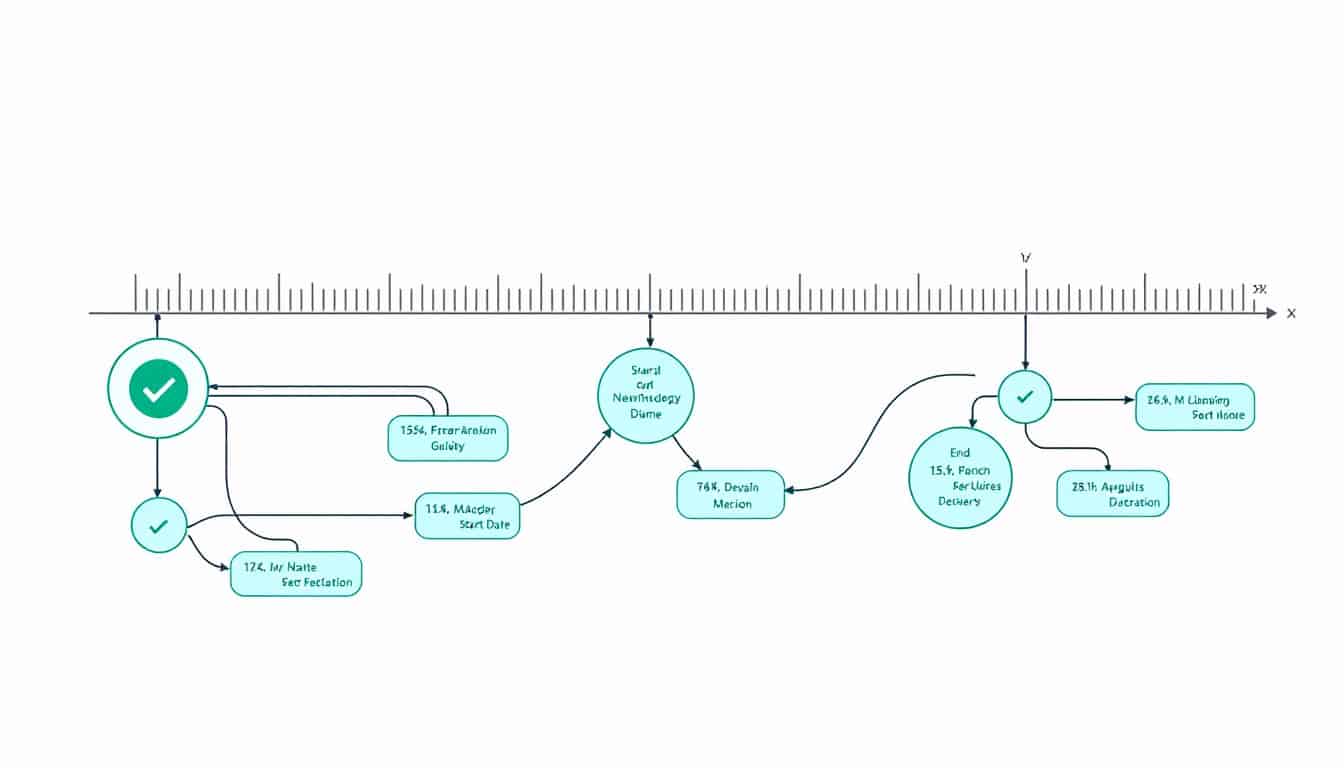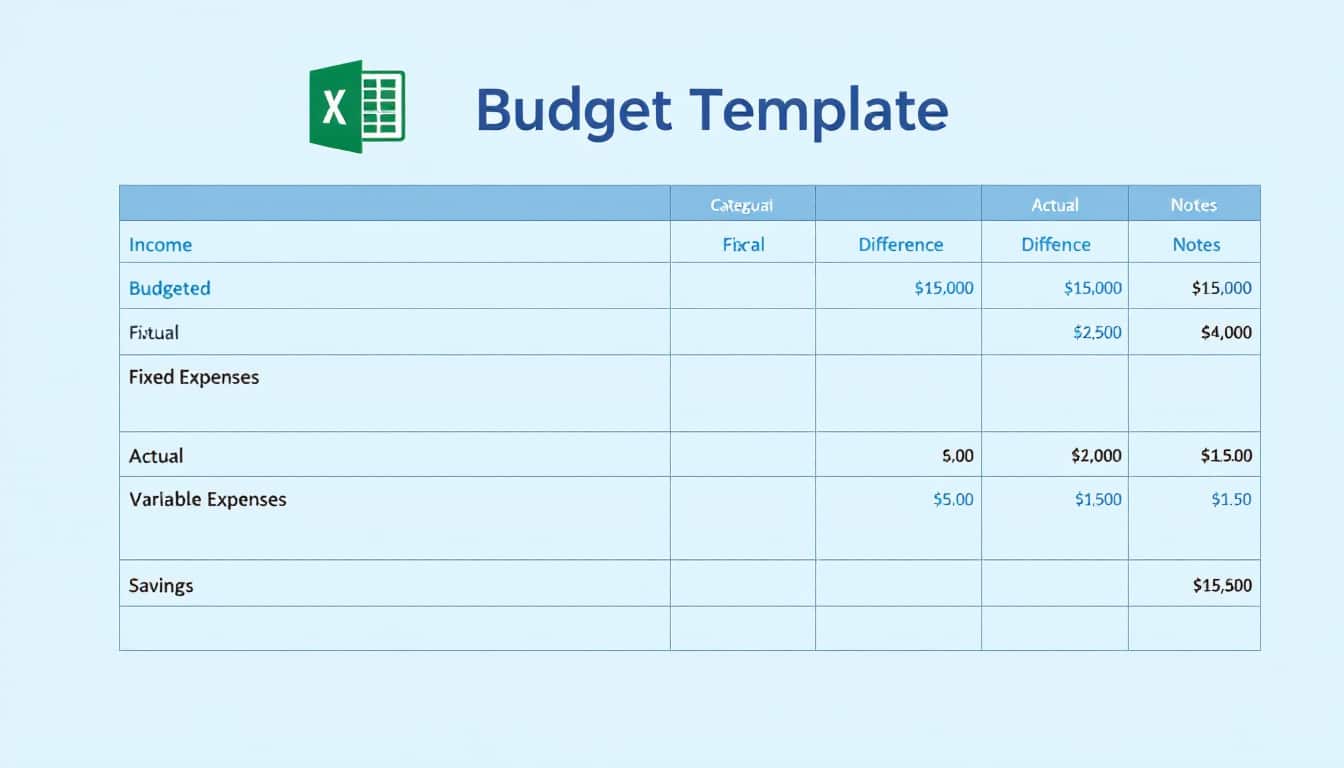“`html
🔥 Nous recommandons Ideamap
Ideamap est l’outil idéal pour un brainstorming ou un projet collaboratif. Grâce son interface facile et à ses fonctions IA, Ideamap booste votre créativité tout en favorisant une meilleure organisation de vos idées pour atteindre vos objectifs.
Artificial intelligence is revolutionizing the landscape of project management. With increasingly powerful tools, project managers now have unprecedented means to optimize their processes. This evolution paves the way for a new era of productivity and efficiency.
Project management is an essential discipline that involves planning, organizing, and managing resources to achieve specific objectives. In the age of artificial intelligence, traditional methods are enriched by advanced technologies, improving the accuracy and speed of decisions. HR indicators become more relevant thanks to big data analysis, allowing for better evaluation of performance and training needs. Moreover, project management software that integrates AI facilitates the planning and tracking of tasks, thus reducing the risks of human error. By 2025, essential HR KPIs will emphasize the resilience and adaptability of teams, two criteria strengthened by the assistance of intelligent technologies. This symbiosis between project management and artificial intelligence promises to open new perspectives for companies wishing to remain competitive and innovative.
What is a project? Definition and key elements
A project is a temporary endeavor aimed at creating a product, a service, or a unique result. Unlike routine operations, a project has a defined beginning and end, as well as specific objectives to achieve. Projects can vary in complexity and scope, ranging from the establishment of a tidal power plant to produce low-carbon electricity to creating an innovative marketing campaign.
The key elements that define a project include clear and measurable objectives, a precise timeline with deadlines to meet, and specific resources, whether human, financial, or material. Additionally, a project is often subject to various constraints, whether budgetary, technical, or regulatory, which requires rigorous management to ensure its success.
Project management relies on a structured approach that allows planning, organizing, and overseeing all necessary steps to achieve the set objectives. A precise definition of the project upfront facilitates team coordination and effective resource allocation, thus minimizing the risks of failure.
For illustration, let’s take the example of a pilot project aimed at testing a new technology. This type of project allows for exploring potential benefits and discovering concrete examples of application, thus providing a solid foundation for large-scale implementation.
Why is project management essential?
Project management is a crucial discipline that ensures the effective realization of defined objectives while respecting time and budget constraints. It allows coordinating the efforts of various stakeholders, optimizing the use of resources, and anticipating potential risks.
A well-structured project management offers several advantages. It improves communication among team members and stakeholders, ensuring that everyone is aligned with the objectives and expectations. Moreover, it fosters better planning and optimized resource allocation, thus reducing waste and inefficiencies.
By 2025, essential HR KPIs will play a key role in project management, enabling evaluation of team performance and making decisions based on relevant data. Additionally, the integration of artificial intelligence in project management tools, such as AI planning assistants, offers innovative solutions to anticipate challenges and optimize processes.
A concrete example of the importance of project management can be observed in software development. Without rigorous management, it’s easy to deviate from the initial timeline, increase costs, or fail to meet customer expectations. Implementing proven methodologies, such as PRINCE2 or PMBOK, helps structure the process and guarantees the delivery of a quality product.
What are the key steps in project management?
Project management is broken down into several essential steps that ensure a smooth and organized progression from the beginning to the end of the project. These steps include identification and planning, execution, and control.
The first step involves clearly identifying the objectives of the project, defining its scope, and determining the necessary resources. This phase also includes stakeholder analysis and creating a creative brief that guides the entire team throughout the project. A detailed planning then structures the tasks, establishes a realistic timeline, and allocates responsibilities.
During the execution, the developed plans are implemented. This phase requires effective coordination among team members, constant resource management, and adaptation to unforeseen circumstances. The use of project management tools, like the software mentioned in the top 10 project management software in 2025, facilitates this step by providing tracking and real-time collaboration features.
Control and supervision are essential to ensure that the project stays on track. This involves monitoring performance indicators, managing risks, and making informed decisions to adjust the project if necessary. Feasibility reports and project prioritization models can be used to assess progress and ensure stakeholder satisfaction.
What tools to use for effective project management?
To manage a project effectively, it is essential to have the right tools. Project management software offers a multitude of features that facilitate planning, organizing, and tracking tasks. By 2025, the best tools include AI-based planning assistants, which help anticipate potential issues and optimize resources.
Among the essential tools are platforms like Asana, Trello, or Microsoft Project, which offer intuitive interfaces for managing tasks, setting deadlines, and tracking project progress. These tools also enable better communication and collaboration among team members through integrated messaging and document sharing features.
Dashboards are also essential for effective project management. They provide an overview of progress made, ongoing tasks, and key performance indicators (KPIs). Using a dashboard for construction projects, for example, allows for visualizing different phases of the project, tracking costs, and managing resources optimally.
Furthermore, project management tools must be tailored to the specific needs of the project. For creative workshops, there are specialized software that allow managing ideas, brainstorming sessions, and creative processes more smoothly. Downloading free project templates for Excel and Word can also be an excellent way to quickly structure a project without starting from scratch.
Finally, integrating AI into these tools offers additional benefits, such as the ability to predict timelines, recommend resource allocations, and provide advanced analyses for improved decision-making. For more on the practical use of these technologies, check out this practical guide.
How to measure the success of a project?
Measuring the success of a project relies on evaluating several key criteria that determine whether the objectives have been achieved and whether the project has been carried out effectively. Among these criteria, performance indicators (KPIs) play a central role.
KPIs allow quantifying the progress made and comparing the results obtained with the initial objectives. In project management, KPIs such as adherence to deadlines, budget compliance, quality of deliverables, and stakeholder satisfaction are commonly used. By 2025, HR KPIs will be particularly important for evaluating team performance and the effectiveness of management processes.
In addition to KPIs, it’s essential to conduct case studies and feasibility reports to analyze project results in depth. These analyses help identify strengths and areas for improvement, thus offering valuable lessons for future projects.
Another crucial aspect of measuring success is evaluating the impact of the project on stakeholders and on the organization as a whole. A project can be considered successful not only if it meets its immediate objectives but also if it provides lasting value to the company or its clients.
For example, the establishment of a tidal power plant may be deemed successful if it effectively produces low-carbon electricity while respecting environmental and budget constraints. Similarly, a software development project will be evaluated based on its ability to meet the needs of end-users, adherence to timelines, and seamless integration with existing systems.
To optimize success measurement, using dashboards and advanced analysis tools is recommended. These tools allow real-time tracking of key indicators and informed decision-making to adjust the project if necessary. By integrating best project management practices and utilizing available technologies, it becomes possible to ensure that each project reaches its full potential and contributes to the growth and success of the organization.
What are common challenges in project management and how to overcome them?
Project management presents numerous challenges that can hinder project success if not properly managed. Among the most common challenges are managing timelines, adhering to budget, coordinating teams, and managing risks.
One of the major challenges is meeting deadlines. Complex projects can easily deviate from the initial timeline due to unforeseen factors. To overcome this challenge, it is essential to meticulously plan each step of the project, incorporating buffers to manage unforeseen issues. The use of project management software with time tracking features and reminder alerts can also help keep the project on track.
Staying within budget is another critical challenge. Cost overruns can compromise the project’s viability. To prevent this, it’s crucial to set a realistic budget from the outset and closely monitor expenses throughout the project. Establishing budget control mechanisms and regularly analyzing expenditures can quickly detect discrepancies and take corrective actions.
Team coordination can also pose issues, especially in projects involving multiple stakeholders or geographically dispersed teams. Effective and regular communication is essential to ensure that all team members are aligned with objectives and expectations. Utilizing collaborative tools, such as online project management platforms, facilitates communication and collaboration, even at a distance.
Managing risks is also a crucial aspect of project management. Every project entails uncertainties that can affect its success. Identifying potential risks early on and developing contingency plans is essential to minimize their impact. Risk analysis tools and methodologies like PMBOK provide structured frameworks for proactively assessing and managing risks.
Finally, resistance to change can represent a significant obstacle, especially in projects involving organizational transformations. To overcome this resistance, it is important to involve stakeholders from the project’s onset, clearly communicate the expected benefits, and provide adequate training to facilitate the transition.
For instance, a well-managed pilot project integrates these strategies to anticipate and manage challenges, ensuring successful implementation and rapid adoption of new practices or technologies.
How to develop project management skills?
Developing project management skills is essential for successfully carrying out complex and varied projects. These skills can be acquired through a combination of training, practical experience, and certification.
The first step to developing project management skills is to undergo specialized training. There are numerous online and in-person courses covering the basics of project management, as well as more advanced aspects like using project management tools or specific methodologies like PRINCE2 and PMBOK. A comprehensive project management course in PDF can be a valuable resource for acquiring this knowledge independently.
Practical experience is also crucial. Actively participating in projects, taking on responsibilities, and learning from mistakes are effective ways to develop skills. Working in a team fosters understanding of group dynamics, improves communication skills, and teaches constructive conflict management.
Certifications in project management, such as PMP (Project Management Professional) or CAPM (Certified Associate in Project Management), are also highly valued. These certifications attest to mastery of best practices and the knowledge needed for effective project management. They also provide professional recognition that can enhance career prospects.
Moreover, regularly using project management tools helps familiarize oneself with modern technologies and optimize management processes. Software like Asana, Trello, or Monday.com offers a practical interface for planning, tracking, and collaborating on projects, thereby increasing efficiency and productivity.
Continuous updating of knowledge is also essential in a constantly evolving field. Keeping abreast of the latest trends, participating in webinars, reading specialized books, and joining project management communities allows one to stay informed about new methodologies and technological innovations, such as the integration of artificial intelligence into management tools.
By investing in skill development, a project manager can not only enhance the success of their projects but also provide significant added value to their organization by optimizing processes, strengthening collaboration, and ensuring high-quality delivery.














